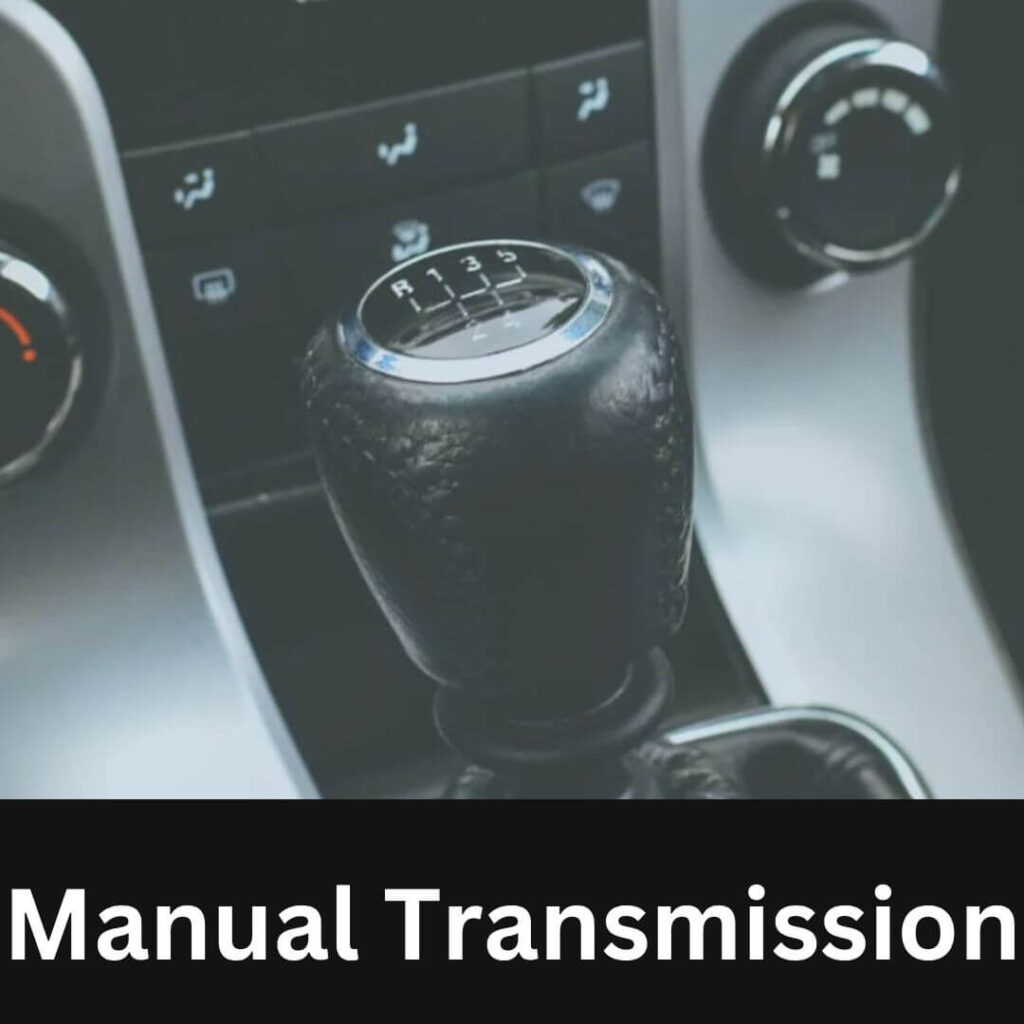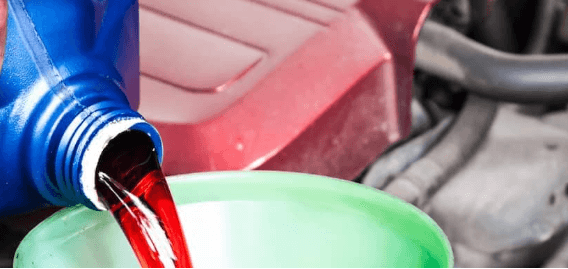Have you ever wondered: How many years does transmission fluid last? It’s a question for many vehicle owners who want to ensure their cars run smoothly, car rental companies who want to stay on top of the game, and car users who run their daily business on the road. You need to understand that the lifespan of transmission fluid is crucial because it directly impacts the health of your vehicle’s transmission system and any breakdown-related problems can disrupt your routines and cause inconvenience
But don’t worry, I’m here to guide you through the process, from the initial curiosity to making informed decisions about your transmission’s maintenance.
I need you to picture yourself cruising down the highway, enjoying the ride, when suddenly you notice a slight hesitation in your car’s shifting. Or maybe you’ve experienced the dreaded transmission slip or strange noises emanating from under the hood. These are all signs that your transmission fluid might be due for a check-up or replacement. But before I jump into solutions, let’s first understand why transmission fluid matters and how its lifespan affects your vehicle’s performance and reliability.
In this post, I will analyse how many years transmission fluids last in a car before a possible change, what factors can influence transmission fluids and signs of degraded transmission fluids. I will also discuss how often you should change transmission fluids in your vehicle. You will also learn about the improved performance your car will experience when you change transmission fluids.
It seems I am speaking your mind… Join me as I get right into it.
How many years does transmission fluid last?
To answer this question perfectly, we will consider the manual and the automatic car brands. First, most manual car manufacturers’ guides state that you could change your car fluid every 30,000 to 60,000 miles. On the other hand, automatic vehicles are good to have a fluid change at 150K to 160K miles.

Asking the question, “How many years does transmission fluid last?” Well, the durability of transmission fluid largely depends on your maintenance routine. Most experts suggest changing it between 30,000 and 100,000 miles, but did you know some vehicles can go about 150–160K miles without a fluid change?
Believe it or not, your transmission fluid is a hardworking hero, able to go years without having a breakdown. However, some cars might need attention sooner, as few as 15,000 miles, especially for those who endure stop-and-go traffic regularly. It’s like giving your car a refreshing drink after a long run.
For optimal performance, consider a fluid change every two to five years, or after every 50,000 to 100,000 km. Think of it as a spa day for your vehicle. Wondering how long transmission fluid lasts? The key is regular check-ups and understanding your car’s unique needs.
So, next time you ponder about your car’s fluid dynamics and seek to know how long can transmission fluid last, remember that a little care every 30,000 miles can keep your transmission humming smoothly for years. in the next section, I will dissect how often you can change your automatic transmission fluid.

Factors influencing transmission fluid lifespan.
Now that you know how long can transmission fluid last, I bet you want to know the factors that influence the longevity of transmission fluid in your car. Trust me, by understanding these factors, you can take proactive measures to preserve the lifespan of your transmission fluid and ensure the continued smooth operation of your vehicle’s transmission system.
1. Driving Habits
The very first factor that can affect your car transmission fluid is your driving habits. To be sincere with you, the way you drive can significantly impact the lifespan of your transmission fluid. If you are a reckless driver involved in an accident now and then, such that you have to frequently tow your car or haul heavy loads on your vehicle, your car transmission fluids will always be affected. others are stop-and-go traffic, and aggressive driving can cause the transmission to work harder, leading to faster fluid degradation.
2. Operating Condition
Another factor that can degrade your car transmission fluids is extreme temperature. Extreme temperature Whether hot or cold, can accelerate the breakdown of transmission fluid. If you consistently drive in high-temperature environments, such as hot climates or heavy traffic, can cause the fluid to overheat and degrade more quickly. Similarly, cold temperatures can affect the fluid’s viscosity and lubricating properties. Therefore, to maintain your car’s transmission fluid, you need to take note of this.
3. Maintenance Practices
Do you know that regular maintenance, including fluid checks and replacements, is crucial for prolonging the lifespan of transmission fluid? You need not be reminded that if you neglect routine maintenance intervals, it can allow contaminants to build up in the fluid, reducing its effectiveness and potentially causing damage to the transmission system.
4. Type of Transmission Fluid
The type and quality of transmission fluid used in your vehicle can also affect its lifespan. Different vehicles require specific types of transmission fluid, such as conventional or synthetic, and using the wrong type can lead to premature wear and damage. Always follow the manufacturer’s recommendation to save yourself unnecessary expenses from changing transmission fluids or maintenance costs.
5. Vehicle Age and Mileage
As old age affects every human being, so does your vehicle. Age and accumulated mileage can affect the transmission fluid of your car. The transmission components may experience wear and tear, which can contribute to fluid degradation. Older vehicles may require more frequent fluid replacements to maintain optimal performance and reliability.
Signs of degraded transmission fluid
Let me tell you this: if you can detect degraded transmission fluid through the signs I’m about to discuss now, you will save yourself a lot of stress and money, as it is crucial for maintaining the health of your vehicle’s transmission system. Why? Because you will be able to address the issue promptly to prevent further damage to your vehicle’s transmission system. Here are some common signs that indicate your transmission fluid may be degraded:
1. Discolouration
Ordinarily, healthy transmission fluid is typically red or pink for automatic transmissions and light brown for manual transmissions. So, if you notice that your car transmission fluid becomes darker or brownish, that could indicate contamination or degradation of the fluid. Therefore, you have to change it before it affects other parts of your car, causing more havoc.
2. Burnt Odor
Transmission fluid should have a slightly sweet or oily smell. If you detect a burnt odour, similar to burnt toast or overheated machinery, it suggests that the fluid has overheated and degraded, potentially due to friction or overheating within the transmission system. This is a sign you can’t ignore to avoid further damage.
3. Fluid Leaks
If you notice visible leaks or puddles of transmission fluid under your vehicle, these are clear indicators of a problem. Leaks can occur due to damaged seals, gaskets, or transmission cooler lines, leading to low fluid levels and potential transmission damage. Your next line of action is to check if the transfusion fluid is degraded or still okay. You can’t afford to overlook a fluid leak in your car.

4. Slipping Gears
A slipping transmission occurs when the vehicle unexpectedly changes gears or experiences a loss of power during acceleration. Degraded transmission fluid can cause insufficient hydraulic pressure, resulting in slipping gears and reduced performance. Take note!
5. Rough Shifting
Rough or jerky shifting between gears is another common sign of degraded transmission fluid. The fluid’s diminished lubricating and hydraulic properties can lead to harsh gear transitions and hesitation during shifts.
6. Transmission Noise
Unusual noises such as whining, grinding, or clunking coming from the transmission area can indicate internal damage or insufficient lubrication due to degraded fluid. These noises may become more pronounced as the condition of the fluid worsens.
7. Delayed Engagement
Delayed engagement occurs when there is a delay or hesitation in the transmission engaging after shifting into gear. Degraded fluid can impede proper hydraulic function, causing delays in gear engagement and potentially leading to transmission damage.
If you notice any of these signs of degraded transmission fluid, it’s essential to address the issue promptly to prevent further damage to your vehicle’s transmission system. You need to do regular fluid checks and replacements, as manufacturers recommend, to help maintain optimal transmission performance and prolong the lifespan of your transmission.
How long does automatic transmission fluid last?
Now, let’s talk about the automatic transmission, how long can transmission fluid last in automatic cars, and how often it can be changed.
The lifespan of automatic transmission fluid (ATF) can vary depending on several factors, including driving habits, operating conditions, and vehicle manufacturer recommendations. Generally, ATF should be replaced every 30,000 to 100,000 miles or every 2 to 7 years. However, it’s essential to refer to the vehicle’s owner’s manual for specific guidelines tailored to the make and model.
Some modern vehicles may come equipped with lifetime ATF that is designed to last the lifetime of the transmission. However, it’s important to note that even lifetime ATF can degrade over time due to factors such as heat, contamination, and wear and tear on transmission components. Therefore, it’s still recommended to perform periodic inspections and fluid replacements.

How often should I change the automatic transmission fluid?
To ensure the lifespan and optimal performance of your vehicle, you must pay attention to the often-overlooked aspect of automatic transmission fluid (ATF) maintenance. The question on every car owner’s mind is, “How often should I change my automatic transmission fluid?” the question is to shed light on how long does transmission fluid last even in automatic transmissions.
The agreement among automotive experts is to change ATF every 30,000 to 60,000 miles. However, the window for this critical maintenance task varies between 30,000 and 100,000 miles. To be more precise, it’s recommended to consider a change about every 30,000 miles or 30 months, whichever comes first.
If you’re more accustomed to metric units, the suggested range is every 48,000 km, but it can stretch to never in some cases. While some may argue for a longer interval, especially after every 50,000 to 100,000 km, it’s crucial to note that ATF acts as the lifeblood of your automatic transmission, and neglecting its care can lead to costly repairs.
Whether your vehicle has a manual or automatic transmission, routinely changing the transmission fluid is key. For those with manual gearboxes, the recommended frequency is every 15,000 miles. This helps maintain the fluid’s integrity, ensuring smooth gear changes and preventing unnecessary wear and tear on the transmission.
Remember, about every 90,000 km (60,000 miles), it’s time to replace the transmission fluid. Don’t underestimate the importance of this seemingly small task; it’s a proactive measure that can save you from major headaches down the road. So, when in doubt, consult your vehicle’s manual, keep an eye on the odometer, and make sure to change your transmission fluid regularly. Your car will thank you for years of reliable performance. The next section is dedicated to tackling the question of performance improvement when you change the transmission fluid.

Does changing transmission fluid improve performance?
You have learned a lot about transmission fluids and how long does transmission fluid last, but you wonder if changing transmission fluid can make a difference in your vehicle’s performance. The answer is a resounding yes! When you choose to change the transmission fluid, you’re essentially giving your vehicle’s transmission a much-needed boost. Changing the fluid can help restore proper lubrication, ensuring that the parts of your transmission are well-coated and function smoothly. This, in turn, leads to improved transmission performance.
By lubricating the crucial components, the fluid ensures you can shift smoothly, promoting consistent and crisp shifts. This not only enhances your driving experience but also puts less stress on internal parts, contributing to the overall efficiency of your vehicle’s engine. Moreover, the change in ATF doesn’t just stop at improved transmission efficiency; it also acts as a preventive measure against corrosion and helps activate the clutches inside the transmission.

Efficiency is the name of the game, and changing the transmission fluid is a great way to achieve that. It not only improves fuel economy but also keeps your engine well-maintained. So, if you’re looking for a simple yet effective way to enhance your vehicle’s performance, consider changing your transmission fluid. Your car will thank you for it.
You can also read: What are the signs of low transmission fluid?—Top 10 Symptoms Expertly Explained.
This blog will continue to answer any questions about your car’s maintenance, transmission fluids, and the rest of them. Engage with my blog to seek guidance and answers.
Drop your comments in the comment section below.

With Over 7 years of experience dealing with car owners as a car lease agent, I have gained matchless car knowledge to help every car owner know what exactly is wrong with their cars.

